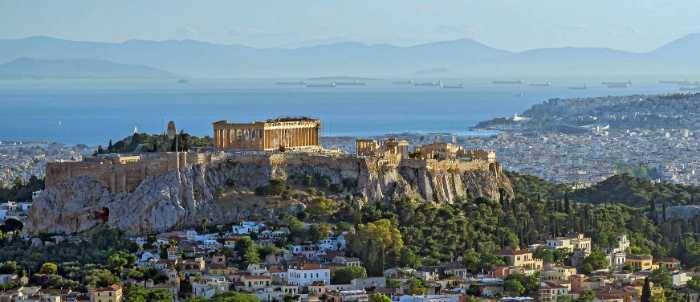
Athens
GreeceAthens, a city whose very name conjures images of ancient philosophers and iconic temples, is far more than a historical monument. It’s a vibrant, modern metropolis built upon millennia of civilization, a place where the echoes of antiquity resonate through the bustling streets of today. Consider this: Athens is one of the oldest continuously inhabited cities in the world, with evidence of settlement dating back over 5,000 years. Imagine the countless generations who have walked the same ground, their lives shaping the very stones beneath your feet. This incredible longevity imbues the city with a unique sense of timelessness, a palpable connection to the distant past that few other urban centers can claim. Intriguingly, Athens wasn't always Greece's sole capital. For a brief period in the 19th century, after the Greek War of Independence, the charming coastal town of Nafplio held the honor. It was Athens' profound historical and cultural significance that ultimately led to its reinstatement as the nation's heart, a testament to its enduring symbolic power. Another fascinating aspect of Athens lies in its surprising number of hills. While the Acropolis, meaning "high city," is the most famous, the city is also dotted with other significant elevations like Lycabettus Hill, offering panoramic vistas, and the Areopagus, the ancient court of appeal. This varied topography provides a dynamic urban landscape and numerous vantage points from which to admire the city's sprawl and the surrounding mountains. Beyond its well-known ancient sites, Athens boasts a thriving contemporary arts scene. The streets of neighborhoods like Psiri and Exarcheia are alive with street art, independent galleries, and a rebellious energy that provides a stark yet compelling contrast to the classical grandeur. This modern creative pulse demonstrates that Athens is not just a city of the past, but a living, breathing cultural hub. Furthermore, the construction of the Athens Metro system unexpectedly unearthed a wealth of archaeological treasures. During the digging process, numerous artifacts from the city's long history were discovered, and many of these finds are now displayed within the metro stations themselves, offering commuters a unique glimpse into Athens' rich past as they go about their daily lives. Finally, the very name of Athens is steeped in mythology. Legend tells of a contest between the goddess Athena and the sea god Poseidon to become the city's patron. Athena's gift of the olive tree, symbolizing peace and prosperity, was chosen over Poseidon's saltwater spring, forever linking the city to the goddess of wisdom and strategic warfare. To walk through Athens is to walk in a city named by the gods, a place where myth and history are inextricably intertwined, offering a profound sense of connection to the very foundations of Western civilization.
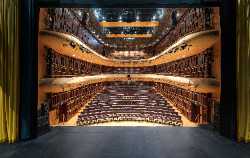 Onassis Stegi
Cultural Centre
Onassis Stegi
Cultural Centre
 Rebecca Camhi Gallery
Gallery
Rebecca Camhi Gallery
Gallery
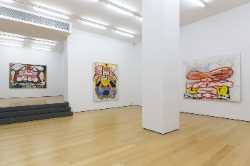 Eleni Koroneou Gallery
Gallery
Eleni Koroneou Gallery
Gallery
 Bernier/Eliades Gallery
Gallery
Bernier/Eliades Gallery
Gallery
 The Breeder Gallery
Gallery
The Breeder Gallery
Gallery
 DESTE Foundation for Contemporary Art
Gallery
DESTE Foundation for Contemporary Art
Gallery
 Kalfayan Galleries
Gallery
Kalfayan Galleries
Gallery
 Hadrian's Arch
Historical landmark
Hadrian's Arch
Historical landmark
 Tower of the Winds
Historical landmark
Tower of the Winds
Historical landmark
 Theatre of Dionysus
Historical landmark
Theatre of Dionysus
Historical landmark
 Temple of Olympian Zeus
Historical landmark
Temple of Olympian Zeus
Historical landmark
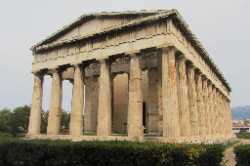 Temple of Hephaestus
Historical landmark
Temple of Hephaestus
Historical landmark
 Parthenon
Historical landmark
Parthenon
Historical landmark
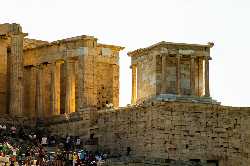 Acropolis of Athens
Historical landmark
Acropolis of Athens
Historical landmark
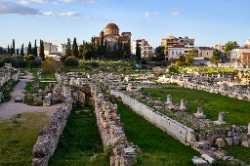 Kerameikos Archaeological Site
Historical landmark
Kerameikos Archaeological Site
Historical landmark
 Acropolis Fortress
Historical landmark
Acropolis Fortress
Historical landmark
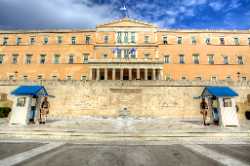 Hellenic Parliament Athens
Historical landmark
Hellenic Parliament Athens
Historical landmark
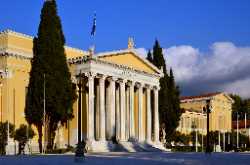 Zappeion Hall
Historical landmark
Zappeion Hall
Historical landmark
 Presidential Mansion
Historical landmark
Presidential Mansion
Historical landmark
 Panathenaic Stadium
Historical Landmark
Panathenaic Stadium
Historical Landmark
 Gennadius Library
Library
Gennadius Library
Library
 Varvakios Agora
Market
Varvakios Agora
Market
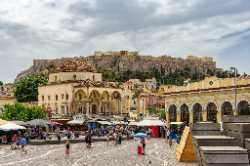 Monastiraki
Market
Monastiraki
Market
 Daphni Monastery
Monastery
Daphni Monastery
Monastery
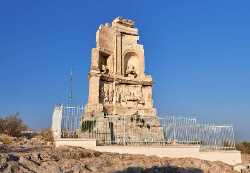 Philopappos Monument
Monument
Philopappos Monument
Monument
 Jewish Museum of Greece
Museum
Jewish Museum of Greece
Museum
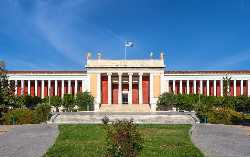 National Archaeological Museum
Museum
National Archaeological Museum
Museum
 Museum of the City of Athens
Museum
Museum of the City of Athens
Museum
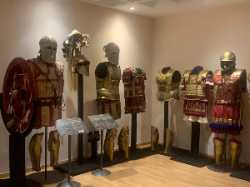 Kotsanas Museum of Ancient Greek Technology
Museum
Kotsanas Museum of Ancient Greek Technology
Museum
 Philatelic and Postal Museum
Museum
Philatelic and Postal Museum
Museum
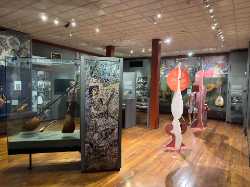 Museum of Popular Instruments
Museum
Museum of Popular Instruments
Museum
 Hellenic Children’s Museum
Museum
Hellenic Children’s Museum
Museum
 Museum of Greek Folk Art
Museum
Museum of Greek Folk Art
Museum
 National Museum of Contemporary Art Αthens
Museum
National Museum of Contemporary Art Αthens
Museum
 Ilias Lalaounis Jewelry Museum
Museum
Ilias Lalaounis Jewelry Museum
Museum
 Herakleidon Museum
Museum
Herakleidon Museum
Museum
 Frissiras Museum
Museum
Frissiras Museum
Museum
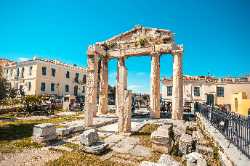 Roman Agora Museum
Museum
Roman Agora Museum
Museum
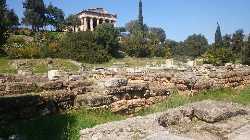 Ancient Agora of Athens
Museum
Ancient Agora of Athens
Museum
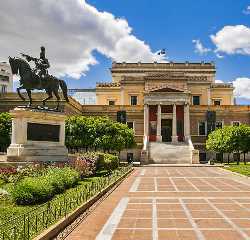 Athens National Historical Museum
Museum
Athens National Historical Museum
Museum
 Epigraphical Museum
Museum
Epigraphical Museum
Museum
 Museum of Pavlos & Alexandra Kanellopoulos
Museum
Museum of Pavlos & Alexandra Kanellopoulos
Museum
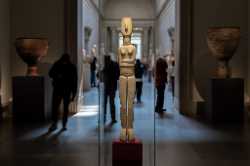 Museum of Cycladic Art
Museum
Museum of Cycladic Art
Museum
 Byzantine and Christian Museum
Museum
Byzantine and Christian Museum
Museum
 Benaki Museum of Contemporary Art
Museum
Benaki Museum of Contemporary Art
Museum
 Athens Municipal Gallery
Museum
Athens Municipal Gallery
Museum
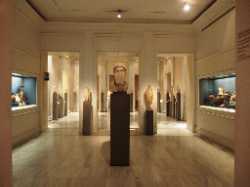 Benaki Museum
Museum
Benaki Museum
Museum
 Goulandris Museum
Museum
Goulandris Museum
Museum
 Numismatic Museum
Museum
Numismatic Museum
Museum
 War Museum Athens
Museum
War Museum Athens
Museum
 National Art Gallery Athens
Museum
National Art Gallery Athens
Museum
 Hellenic Motor Museum Athens
Museum
Hellenic Motor Museum Athens
Museum
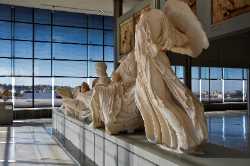 Acropolis Museum
Museum
Acropolis Museum
Museum
 Penteli Observatory
Observatory
Penteli Observatory
Observatory
 National Observatory of Athens
Observatory
National Observatory of Athens
Observatory
 Tatoi Palace
Palace
Tatoi Palace
Palace
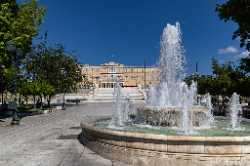 Syntagma Square
Park
Syntagma Square
Park
 National Garden of Athens
Park
National Garden of Athens
Park
 Pedion tou Areos
Park
Pedion tou Areos
Park
 Mount Lycabettus
Park
Mount Lycabettus
Park
 Strefi Hill
Park
Strefi Hill
Park
 Filopappou Hill
Park
Filopappou Hill
Park
 Antonis Tritsis Park
Park
Antonis Tritsis Park
Park
 Anafiotika
Square
Anafiotika
Square
 Badminton Theatre
Theatre
Badminton Theatre
Theatre
 Peiraios 260
Theatre
Peiraios 260
Theatre
 Pallas Theatre
Theatre
Pallas Theatre
Theatre
 Megaron Athens Concert Hall
Theatre
Megaron Athens Concert Hall
Theatre
 Rex Theatre
Theatre
Rex Theatre
Theatre
 National Theatre of Greece
Theatre
National Theatre of Greece
Theatre
 Athens Riviera
Tourist attractions
Athens Riviera
Tourist attractions
 Plaka
Tourist attractions
Plaka
Tourist attractions
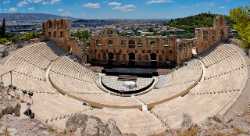 Odeon of Herodes Atticus
Tourist attractions
Odeon of Herodes Atticus
Tourist attractions
 Technopolis
Tourist attractions
Technopolis
Tourist attractions
 Stavros Niarchos Foundation Cultural Center
Tourist attractions
Stavros Niarchos Foundation Cultural Center
Tourist attractions